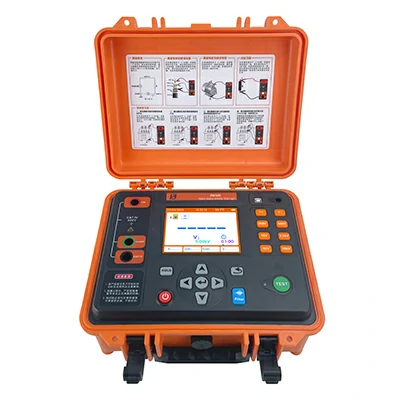Insulation resistance testing and viscosity measurement are two distinct types of measurements with different purposes and techniques. Insulation resistance testing is used to assess the integrity of insulation materials in electrical cables, while viscosity measurement is used to quantify the resistance of fluids to flow.
Attempting to use insulation resistance testing to measure viscosity would be inappropriate and impractical due to several limitations:
- Different Measurement Principles: Insulation resistance testing measures the resistance to electrical current flow through an insulating material, typically by applying a voltage and measuring the resulting current. Viscosity measurement, on the other hand, involves assessing the resistance of a fluid to flow, often by determining the force required to move the fluid or the time it takes for the fluid to flow through a specific area. These are fundamentally different measurement principles that cannot be directly applied to each other.
- Limited Applicability: Insulation resistance testing is specifically designed for assessing the electrical properties of insulation materials in cables and electrical equipment. It is not intended for measuring the viscosity of fluids. Attempting to use insulation resistance testing for viscosity measurement would not provide meaningful or accurate results.
- Incompatibility with Viscosity Measurement Techniques: The techniques and equipment used for insulation resistance testing, such as megohmmeters or insulation testers, are not designed to measure viscosity. These instruments are calibrated and optimized for assessing insulation resistance, insulation resistance test on high voltage cables and attempting to repurpose them for viscosity measurement would be technically challenging and unreliable.
- Insensitivity to Viscosity: Insulation resistance testing measures the electrical properties of insulation materials and is insensitive to the viscosity of any fluids present within the insulation. Even if some fluid were present in the insulation, the effect on the insulation resistance measurement would likely be negligible compared to the effects of moisture or contamination.
- Risk of Damage: Attempting to use insulation resistance testing equipment for viscosity measurement could potentially damage the equipment or produce inaccurate results. Insulation resistance testers are not designed to handle fluids or measure their viscosity, and subjecting them to such conditions could compromise their performance or safety.
In summary, insulation resistance testing is not suitable for measuring viscosity, and attempting to do so would be impractical and potentially damaging to the equipment. Viscosity measurement requires specialized techniques and equipment designed specifically for that purpose, and it cannot be accurately inferred from insulation resistance measurements on high voltage cables.
